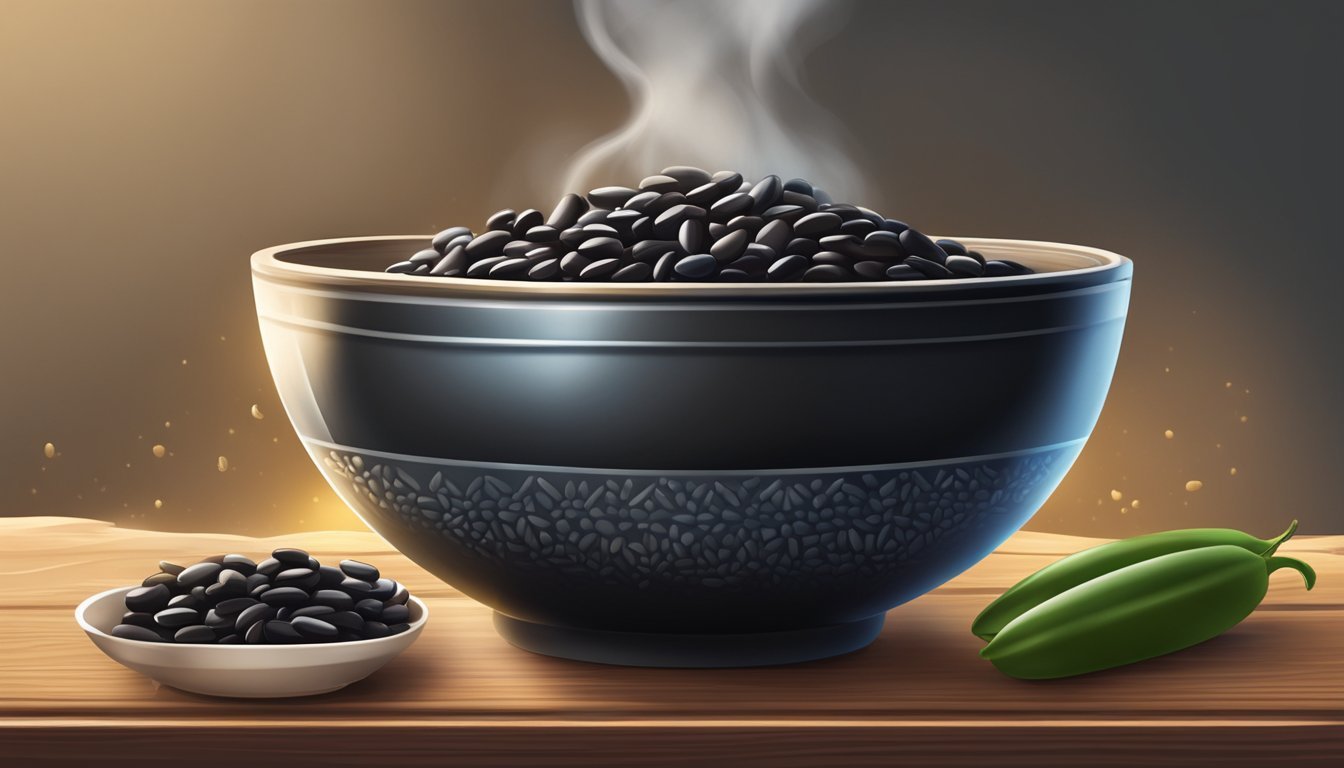Boosting Albumin Levels
Essential Protein Sources for Health
Maintaining optimal albumin levels is crucial for overall health, particularly for those managing certain medical conditions like kidney disease. Albumin, a key protein found in the blood, plays a significant role in growth, tissue repair, and maintaining proper bodily functions. Knowing which foods are rich in albumin can help individuals meet their nutritional needs and sustain their health.
Dietary choices can significantly influence albumin levels, and incorporating high-albumin foods into daily meals is a practical strategy. By selecting from a variety of protein-rich foods, one can not only enhance albumin levels but also enjoy a balanced and nutritious diet. Understanding the importance of these foods can empower individuals to make informed decisions beneficial to their well-being.
1) Egg whites
Egg whites are a nutritional powerhouse, particularly when it comes to protein content. They contain approximately 4 grams of protein per egg white, making them a substantial option for boosting albumin levels.
Besides protein, egg whites are exceptionally low in calories and devoid of fat. This makes them a preferred choice for those who need to manage their calorie intake without sacrificing protein.
Egg whites are also rich in several essential micronutrients. Notably, they contain 6.6 micrograms of selenium, a mineral important for metabolism and thyroid function, and 2.3 milligrams of calcium, which supports bone health.
The absence of cholesterol in egg whites adds another layer of health benefits, especially for individuals concerned about heart health. Whole eggs, which include the yolk, are higher in cholesterol and fat.
The versatility of egg whites allows them to be used in various recipes. They can be consumed as a snack, used in omelets, or incorporated into baking, making it easy to include them in a daily diet.
In summary, egg whites are an excellent source of high-quality protein and essential nutrients, making them a valuable food for maintaining optimal albumin levels and supporting overall health.
2) Chicken Breast
Chicken breast is a popular protein source known for its high albumin content. It is an excellent choice for those looking to increase their albumin levels. Rich in protein, chicken breast provides about 14 to 28 grams of protein per serving, depending on the portion size.
This lean meat is also low in fat and cholesterol, making it a suitable option for health-conscious individuals. It can be prepared in various ways, such as baked, grilled, or pan-fried, ensuring versatility in meal planning.
In addition to its protein content, chicken breast offers essential vitamins and minerals, including B vitamins and phosphorus. These nutrients support overall health and are important for maintaining high albumin levels in the body.
Chicken breast can easily be incorporated into daily meals. Whether as the main dish in a dinner entree or added to salads and sandwiches, its mild flavor pairs well with numerous ingredients.
When choosing chicken, it is best to opt for skinless, boneless cuts to maximize nutritional benefits while minimizing fat and calories. Avoid frying, as it can add unnecessary fats and sodium.
By regularly including chicken breast in their diet, individuals can effectively support their albumin levels and overall nutritional goals.
3) Black Beans
Black beans are a nutritious food known for their high protein content. Each serving of cooked black beans (1/2 cup) provides approximately 8 grams of protein.
In addition to protein, black beans offer essential vitamins and minerals. They are particularly high in folate, iron, phosphorus, and potassium. These nutrients support various bodily functions, including blood cell production and maintaining a healthy heart.
Black beans are also an excellent source of dietary fiber. With around 7 grams of fiber per 1/2 cup serving, they contribute significantly to digestive health. This high fiber content can help manage blood sugar levels and support weight management.
For those following plant-based diets, black beans are a valuable protein alternative. They contain all the essential amino acids when combined with other plant-based foods, making them a complete protein source. This makes them especially beneficial for vegetarians and vegans.
Additionally, black beans are naturally free from gluten, making them suitable for individuals with gluten sensitivities or celiac disease. Their versatility allows them to be used in various dishes, from soups and salads to main courses.
Incorporating black beans into the diet can be a tasty and nutritious way to boost overall health.
4) Cottage cheese
Cottage cheese is a notable source of protein, which plays a vital role in maintaining healthy albumin levels. A 1/2 cup serving typically contains 12 to 15 grams of protein, depending on the fat content.
Low in potassium and phosphorus compared to other dairy products, it is an excellent choice for those managing kidney health.
Sodium content can vary across brands, so checking labels is essential to select low-sodium options. Pairing cottage cheese with fruits like berries or peaches can enhance taste without adding excessive potassium.
Incorporating cottage cheese into meals is simple. It can be added to omelets, salads, or even blended into smoothies. This versatility makes it a convenient addition to a high-protein diet.
Cottage cheese also provides other beneficial nutrients, including calcium and selenium, supporting overall health. Thus, it serves as a valuable food for anyone aiming to boost their albumin levels through diet.
5) Greek yogurt
Greek yogurt is a protein-rich food that can contribute to maintaining healthy albumin levels. It offers a significant amount of protein, with one cup containing approximately 22 grams. This makes it an excellent option for those looking to boost their protein intake without consuming meat.
Greek yogurt is versatile and can be incorporated into various meals. It can be eaten plain, added to smoothies, or used as a base for sauces and dressings. This versatility makes it easy to include in daily diets.
The high protein content in Greek yogurt also helps in feeling fuller for longer periods, which can be beneficial for weight management. Moreover, it supports muscle maintenance and overall bodily functions, which are critical for those monitoring their albumin levels.
Despite its benefits, Greek yogurt should be consumed in moderation. It contains potassium and phosphorus, which might be restricted for individuals with specific dietary needs. Consulting a dietitian can provide guidelines on appropriate portion sizes and frequency of consumption.
Including Greek yogurt in a balanced diet, along with other high-protein foods, can aid in maintaining optimal albumin levels. It offers a healthful alternative to meat-based protein sources, providing both nutritional value and variety in meal planning.
6) Turkey Breast
Turkey breast stands out as a high-quality protein source, essential for maintaining optimal albumin levels.
A 3.5-ounce (100g) serving of turkey breast provides about 30 grams of protein. This makes it an excellent choice for those looking to boost their albumin levels through diet.
Rich in essential nutrients, turkey breast is not only a protein powerhouse but also low in fat. Incorporating it into meals can support overall health and nutritional balance.
Whether grilled, baked, or broiled, turkey breast can be prepared in various ways. Its versatility makes it a popular protein option for many dishes.
In summary, turkey breast is a beneficial food for increasing protein intake, vital for keeping albumin levels up. Its nutrient density and low-fat content make it a valuable addition to a healthy diet.
7) Quinoa
Quinoa (Chenopodium quinoa Willd.) is an ancient grain celebrated for its high nutritional value. Known for its resilience, quinoa thrives in harsh conditions such as drought and high salinity, making it a valuable crop in diverse environments.
One key benefit of quinoa is its high protein content, which includes all nine essential amino acids. This characteristic makes it a complete protein source, unlike many other plant-based proteins.
Quinoa is rich in albumin, a type of protein that contributes to its overall nutritional profile. Albumin in quinoa assists in maintaining and repairing tissue, providing an important source of protein for vegetarians and vegans.
Apart from its protein benefits, quinoa is also packed with other essential nutrients. It contains significant amounts of fiber, vitamins, and minerals, such as magnesium, potassium, and iron. These nutrients support various bodily functions and overall health.
Additionally, quinoa has a low glycemic index, which means it has a slower impact on blood sugar levels. This makes it a suitable food choice for people managing diabetes or those looking to maintain steady energy levels.
Quinoa's versatility in cooking further enhances its appeal. It can be used in salads, soups, and as a side dish, making it an easy addition to various meals. With its high nutritional value and adaptability, quinoa stands out as a valuable source of albumin and other essential nutrients.
8) Almonds
Almonds are a valuable addition to a diet aimed at supporting albumin levels. They are nutritionally dense, providing a substantial amount of protein. In 100 grams of almonds, you'll find approximately 21 grams of protein, making them an excellent choice for those looking to increase their protein intake.
This tree nut is also rich in healthy fats and fiber, which contribute to overall health. Almonds can be enjoyed in various forms such as raw, roasted, or as almond butter. They can be easily incorporated into snacks, salads, and even smoothies.
For those with kidney disease, it's important to note that almonds are high in oxalates and phosphorus. Moderation is key, and consulting with a healthcare provider about individual dietary needs is recommended. Despite this, almonds remain a versatile and nutritious option for many people.
9) Tuna
Tuna is a highly recommended food for those seeking to increase their albumin levels. It is an excellent source of high-quality protein. A 3-ounce serving of canned tuna in water provides approximately 20 grams of protein.
In addition to protein, tuna is rich in omega-3 fatty acids. These healthy fats contribute to overall health and can be beneficial for those with kidney concerns.
Tuna is also relatively low in potassium and phosphorus compared to other protein sources, making it suitable for a kidney-friendly diet. Its versatility allows it to be used in a variety of dishes, such as salads, sandwiches, and casseroles.
Choose tuna packed in water rather than oil to keep calorie intake in check. Simple preparations, like a tuna salad with low-sodium ingredients, can make a nutritious and kidney-friendly meal.
Adding tuna to the diet can help maintain albumin levels, crucial for those managing kidney disease. Always consider portion sizes and consult with a healthcare provider to ensure it fits into an individualized dietary plan.
10) Chia Seeds
Chia seeds are a powerhouse of nutrients and an excellent source of protein, which includes albumin. They contain approximately 5 grams of protein per ounce (28.35 grams), making them a valuable addition to a protein-rich diet.
Rich in fiber, chia seeds aid in digestive health and can help maintain a feeling of fullness. Their high fiber content, about 10 grams per ounce, supports healthy digestion and weight management.
Chia seeds are also packed with omega-3 fatty acids, which are beneficial for heart health. These seeds offer a significant amount of these essential fatty acids, which can help reduce inflammation.
Incorporating chia seeds into meals is easy. They can be added to smoothies, yogurt, oatmeal, and baked goods. Their neutral flavor makes them versatile for various dishes.
Furthermore, chia seeds can help regulate blood sugar levels. Their high fiber and protein content contribute to slower digestion and stable blood sugar control, which is beneficial for those managing diabetes.
Understanding Albumin
Albumin is a crucial protein in the human body. It supports various physiological functions, including maintaining growth and repairing tissues, as well as aiding in fluid balance during treatments like dialysis.
What is Albumin?
Albumin is the most abundant protein in the bloodstream. It serves as a major protein that influences osmotic pressure, which is vital for the distribution and balance of fluids between body tissues and the bloodstream.
This protein is produced by the liver and plays an essential role in various bodily functions. The normal range for albumin levels typically lies between 3.4 to 5.4 grams per deciliter (g/dL).
The Role of Albumin in the Body
Albumin has several critical roles. Firstly, it helps maintain the proper distribution of fluids by pulling extra fluid from swollen tissues back into the blood. This process is crucial for individuals undergoing dialysis as it aids in removing excess fluid from the body.
Additionally, albumin is integral to growth and tissue repair. It provides the necessary building blocks for tissue maintenance and recovery. In cases of malnutrition, where protein intake is insufficient, albumin levels can drop, affecting overall health and recovery speed.
Maintaining adequate albumin levels is essential for keeping the body’s fluid balance and ensuring tissue health. This makes understanding and monitoring albumin crucial for both individuals with specific health conditions and for maintaining general wellness.
Health Benefits of Albumin-Rich Foods
Incorporating albumin-rich foods into your diet can profoundly boost immune function and support muscle growth. These benefits make such foods essential for overall health and wellness.
Boosting Immune Function
Albumin plays a pivotal role in the immune system. It helps maintain the osmotic balance, which prevents fluid leakage from blood vessels into tissues, reducing swelling and inflammation.
This protein also transports essential nutrients like vitamins, hormones, and minerals, ensuring they reach cells that need them to function optimally. By facilitating these processes, albumin-rich foods support the immune response, helping the body to fend off infections more efficiently.
A diet rich in lean meats, fish, and eggs can provide adequate protein to keep albumin levels sufficient, thus reinforcing the body's natural defenses.
Supporting Muscle Growth
Protein is fundamental for muscle growth, and albumin-rich foods are excellent protein sources. They supply the necessary building blocks, amino acids, which are essential for muscle repair and growth.
Lean meats such as chicken and turkey, dairy products like Greek yogurt, and plant-based options like quinoa and beans are excellent choices. These foods help maintain muscle mass, especially important for athletes or individuals engaged in strength training.
Additionally, adequate albumin levels contribute to quicker recovery times post-exercise by repairing muscle tissues more rapidly. They ensure efficient nutrient delivery to muscles, aiding in overall muscle development and endurance.
Incorporating Albumin-Rich Foods into Your Diet
Consuming albumin-rich foods can help maintain optimal health, especially for those with specific dietary needs. This includes understanding the appropriate daily intake and practical meal planning.
Daily Intake Recommendations
For adults, the recommended dietary allowance (RDA) for protein is approximately 46 grams per day for women and 56 grams per day for men. An important part of maintaining albumin levels is ensuring adequate protein intake.
Those with certain health conditions, like kidney disease, might need to adjust these levels based on medical advice. Foods high in albumin-supporting protein include lean meats such as chicken, turkey, fish, and eggs, along with plant-based options like lentils and quinoa.
Meal Planning Tips
Effective meal planning incorporates high-protein foods into each meal. Breakfast could feature eggs or Greek yogurt, while lunch and dinner can include lean meats or tofu. For snacks, nuts and cheese are good options.
For example, a sample meal plan might include:
Breakfast: Scrambled eggs with spinach
Lunch: Grilled chicken salad
Dinner: Baked salmon with quinoa
Snack: Nuts or a protein shake
Balancing these foods throughout the day ensures sustained protein intake, supporting albumin levels effectively.








